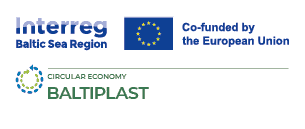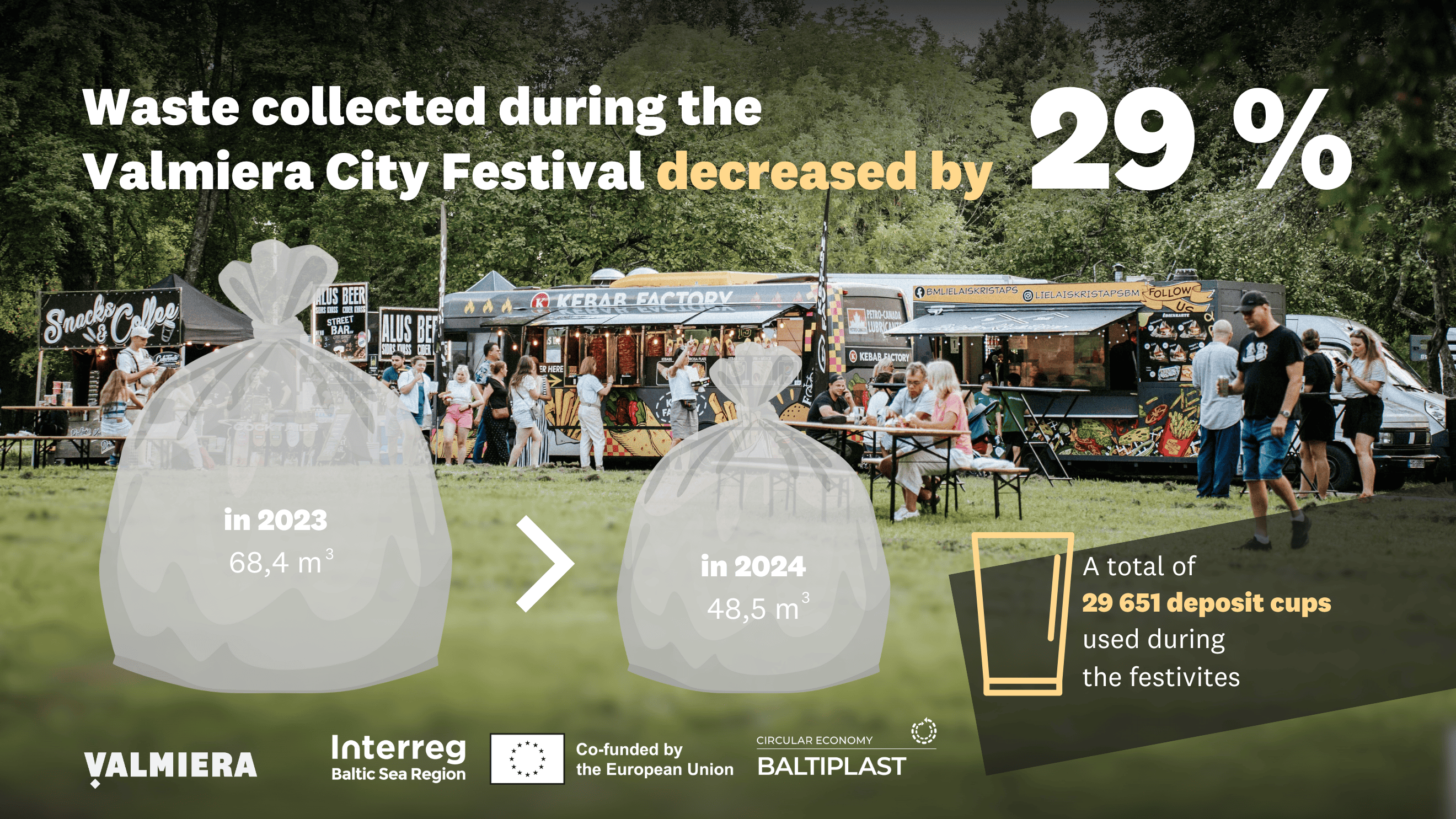
Waste Reduction During Valmiera City Festival
27 August 2024
This year, celebrating Valmiera’s 741st birthday, special attention was paid to the environmental impact of the festivities, with a focus on waste reduction. Every year, it has been observed that waste produced in the catering area accounts for a large proportion of the total waste, which is why a cup deposit system was introduced.
The cup deposit system operated for two days over the festival weekend – Friday and Saturday – ensuring that the most popular festive drinks were poured into reusable 0.5 Liter cups. In total, 29,651 deposit cups were used over the festive period.
Last year, a total of 68.4 cubic meter of waste was collected, but this year there was a reduction of around 20 cubic meter to a total of 48.5 cubic meter. Of this, 0.24 cubic meter is plastic, paper and metal waste, 0.12 cubic meter is glass and the rest is municipal waste. This means that together we have managed to reduce the amount of waste collected by 29.09%!
It was observed that, compared to other years, the festival areas were much cleaner after the festival, with significantly less litter left on the ground. When visitors were asked about the cup deposit system, they claimed that the steps for using and returning cups were easy to understand, but would like to see a wider variety of glasses available to ensure that all drinks are poured into deposit glasses.
To further reduce the amount of waste collected, the deposit system should be improved by introducing different volume cups making for all drinks suitable to be served in reusable alternatives during the festivities, as well as serving food on plates included in the deposit system. Additionally, the opening hours of the system should also be extended to cover the full festival period.
Furthermore, Green Ambassadors were available at certain times during the festival to help with advice on sorting waste. Although the idea is successful and appreciated by the people, it has to be admitted that the most frequent waste generated during the festivities is difficult to separate and therefore ends up in the municipal waste bin. These are single-use containers, food packaging and other single-use items.
In order to assess the environmental impact of the event, within the project “BALTIPLAST” we will carry out an environmental impact assessment of the event. This will allow the precise assessment of the impact in each area, as well as for the identification of future measures to further reduce resource consumption and, consequently, the overall environmental impact.
Elizabete Brūvere
Valmiera Municipality Government
Environmental communication project manager






